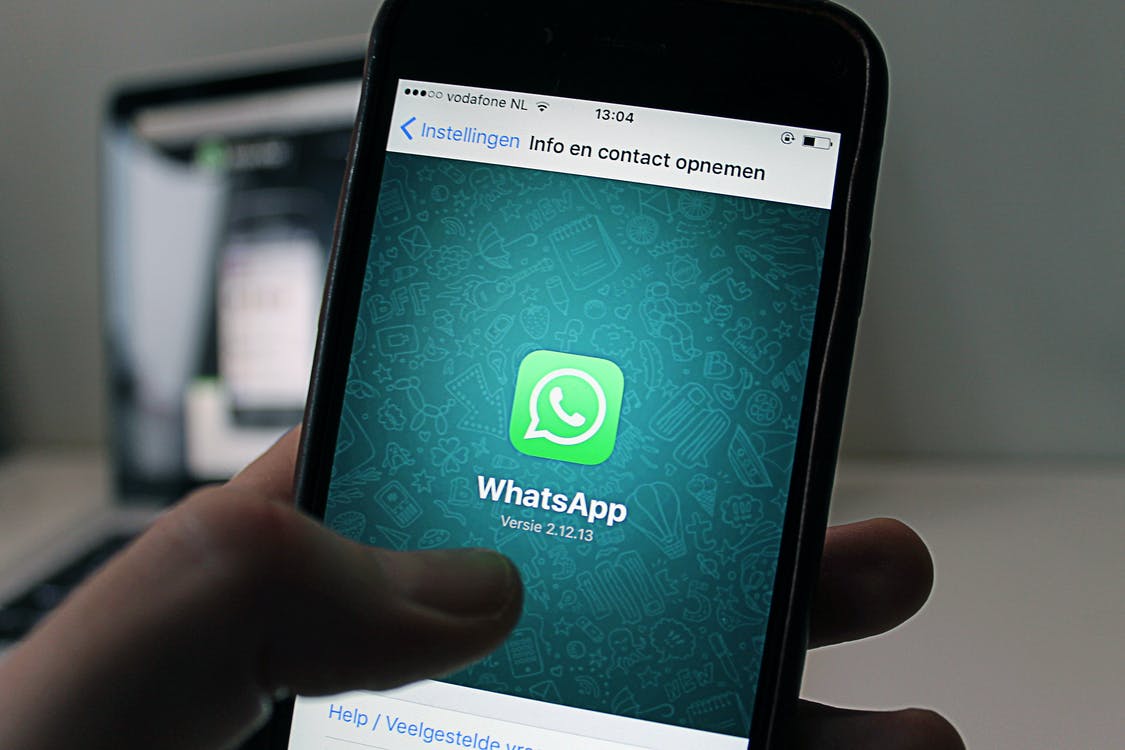Are you looking for a highly targeted form of marketing that allows you to engage in meaningful conversations with your customers?
Why not try WhatsApp?
With more than 2 billion users in 180+ countries, WhatsApp is the most popular messaging app globally. More than 65 billion messages are sent via WhatsApp every day, higher than any other messaging app in the world.
Source: WhatsApp
In 2018, WhatsApp launched WhatsApp Business, a dedicated messaging app that helped businesses interact with their customers on WhatsApp.
This increasing number of users, along with rich multimedia sharing options, makes WhatsApp a platform every business should leverage.
In this post, we’ll discuss ten reasons your marketing strategy needs to include WhatsApp marketing software.
1. Privacy and Security
User preferences have been continuously changing when it comes to instant messaging platforms. Back in the day, when text messaging was the only supported messaging format, users wanted to send multimedia and GIFs. Then came emoticons and stickers.
Now, the focus has shifted to security and privacy. That’s the reason why platforms like WhatsApp are gaining so much popularity. WhatsApp has an end-to-end message encryption feature that ensures all your conversations remain inaccessible to third parties.
2. Seamless Accessibility
WhatsApp Business Messaging has emerged as one of the most convenient forms of marketing for both businesses and customers.
If we remove WhatsApp from the picture, what other marketing options do marketers have?
Search engine ads are one. But they’ll only get triggered if a customer searches for something. The same goes for social media. The ad would be effective only if your target customer uses the social media platform you’ve put on the ad.
With WhatsApp, the approach ability and accessibility increase. As it has become a premier messaging platform across the world, WhatsApp users are almost always online. Therefore, you can send a marketing message and reach out to your target customer easily.
3. Meaningful Conversations
WhatsApp allows you to interact with your customers in real-time. You can ask them direct questions, send polls and surveys, and respond to their queries and issues. This two-way interaction increases engagement and allows you to develop meaningful relationships with your customers.
A Salesforce study showed that 64% of customers expect brands to offer tailored engagements based on their past interactions. They want to be treated as individual entities and not just a group of people who share similar interests.
With WhatsApp, you can make your advertising and marketing efforts more sensible and consumer-centric. You can ask questions, request feedback, and resolve their queries and issues.
4. Improved Branding and Credibility
WhatsApp Business has a “Verified Profiles” feature similar to getting a verified profile on Instagram or Twitter. However, the algorithm of WhatsApp verification is different. It focuses on authenticity and credibility instead of the number of followers and likes making it easier for businesses to get verified.
As online frauds are on the rise, consumers are becoming more skeptical about communicating with businesses. When you send messages from a verified profile, you’re likely to be considered more credible and trustworthy. This increases your chances of driving more engagement.
5. Quick Response Time
As discussed, WhatsApp has become the cornerstone of text messaging in the world. People use WhatsApp not only to communicate with their friends and family but also for professional communications. As a result, people stay online on WhatsApp all the time.
For businesses, this means an opportunity to reach their customers quickly. You can message your customers and receive an instant response.
Organizations can also use WhatsApp to provide customer service. A research report from Facebook suggested that more than 50% of people would prefer receiving customer support via chat rather than over voice call.
6. Ability to Target a Broader Group of Customers
Here’s the problem with social media marketing. Each platform attracts unique demographics. Platforms like Snapchat and Instagram are popular among people aged 18-24 years. Facebook is more prevalent among millennials and older adults. – the same goes for LinkedIn. Pinterest is primarily used by females.
But the use of WhatsApp is consistent across all age groups and genders. The GenZ – people born after 1998 – use WhatsApp to interact with their friends and family. Many schools and colleges are using WhatsApp to deliver online lectures and study materials.
Millennials – mainly working professionals – use WhatsApp for professional communications. And now, with remote work becoming the new normal, WhatsApp has emerged as a popular channel for business communications.
Companies can utilize this opportunity to facilitate their marketing campaigns. They can send advertising content and target a broad demographic of end-users.
7. Effective Advertising and Promotion
Let’s draw a small comparison again. When you use PPC advertising, your content is limited to text only. Your target customer will need to make a decision based on the headline.
And let’s face it; unless you’ve created an extremely compelling ad copy, the chances of getting PPC clicks are difficult, let alone the conversions.
But on WhatsApp, you can use a wide range of multimedia elements to send your message across to your customers. At present, WhatsApp supports documents, images, videos, audios, and contacts. Recently, WhatsApp has also launched the WhatsApp payments feature.
These features make WhatsApp an excellent platform for sending advertisements and promotional content.
8. Permission-Based Advertising
There’s been a never-ending debate on the intrusiveness of advertisements. We all hate pop-up ads showing up from nowhere, don’t we? That’s the reason many internet users use advertisement blocking extensions to enjoy an ad-free experience.
On the other hand, WhatsApp Business requires you to ask your end-users for permission before sending them a message. If they’re interested in hearing from you, they’ll permit you. If not, you won’t be able to interact with them.
But in the end, you’re respecting your customers’ privacy. And customers are more likely to stick with a brand that respects their privacy.
9. Personalized Communication
According to a study by Epilson, 80% of consumers would shop from a brand that offers personalized experiences. This means customers are ditching brands that use a one-for-all approach and instead embracing brands that truly understand their needs.
With WhatsApp Business, you can provide a personalized experience to your customers. WhatsApp Business allows you to send unique messages to each end-user instead of sending the same message to all. Therefore, it helps you drive more customer engagement and conversions.
10. Get In-Depth Insights
WhatsApp Business provides a “WhatsApp Business Statistics” feature, which allows you to track and measure your campaign’s progress. The statistics feature helps you get insights into total messages sent, messages seen, responses received, etc.
These stats help you measure the success of your WhatsApp marketing efforts. You can utilize these insights to tailor your marketing campaigns and make informed business decisions.
Conclusion
WhatsApp’s transformation in this short span is commendable from being a popular messaging platform to becoming a go-to marketing channel for brands. Laser-focused targeting features, along with support for various types of multimedia, make WhatsApp a fantastic platform for businesses.
Many popular brands like Netflix, KLM, BookMyShow, OYO, Hellman’s are using WhatsApp to deliver hassle-free experiences to their customers.
So, are you using the best WhatsApp marketing software to grow your business?



































